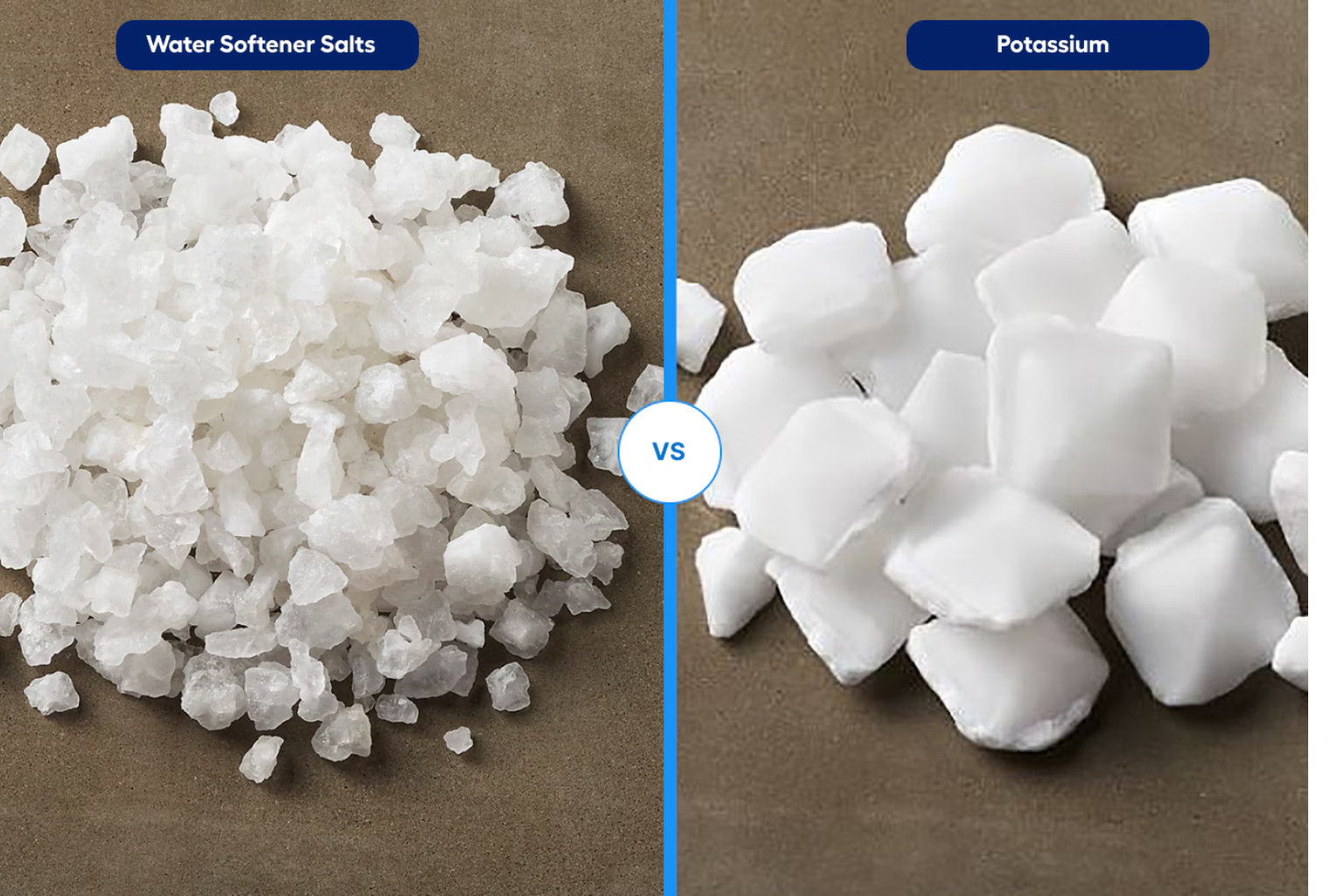If you’ve ever peeked into the dusty corner of your utility room and noticed the bags piled next to your water softener, you’ve probably asked yourself—What exactly am I putting in there? And more importantly, should I be using something else?
In the high-desert town of St. George, Utah—where hard water is as common as sunburns in July—water softeners are just part of life. But not all softeners are created equal, and neither are the materials we feed them. That’s where the debate of potassium chloride vs salt for water softener systems gets real.
Let’s break it down without the jargon. No robotic mumbo jumbo. Just a clear look at your options—with a bit of personality along the way.
Why Soften Water in the First Place?
Before we throw potassium and salt into the ring for a cage match, let’s get one thing straight: hard water is a silent destroyer. The minerals—mainly calcium and magnesium—clog up pipes, reduce the efficiency of your appliances, and leave those lovely white spots on your dishes. That’s where water softeners step in. They work by exchanging those hardness minerals with something else—traditionally sodium, but sometimes potassium.
And here’s the kicker: both options technically do the job. But they don’t come without trade-offs.
The Salty Standard: Sodium Chloride
Let’s start with the classic. Salt (sodium chloride) has been the default choice for decades. It’s affordable, easy to find, and highly effective at softening water. When your softener regenerates, salt ions swap out the calcium and magnesium ions. Simple chemistry.
Pros:
- Cheap and widely available
- Very efficient at ion exchange
- Compatible with nearly all softeners
But of course, there’s a flip side. Using salt means you’re adding a small amount of sodium to your household water. Now, it’s not a huge amount—nothing that’ll have your doctor ringing alarm bells—but for people with high blood pressure or dietary sodium restrictions, it’s something to consider.
There’s also the environmental angle. Sodium discharge from softeners can be tough on soil and plants. If you’re watering your lawn or garden with softened water? Not ideal.
Enter the Challenger: Potassium Chloride
Potassium chloride offers a gentler alternative. It’s derived from potassium, an essential plant nutrient and a better environmental option for watering outdoors. But the main reason some folks lean this way is health. If you’re trying to avoid added sodium altogether, potassium is the way to go.
Pros:
- No added sodium to your water
- Better for the environment and landscaping
- A healthier option for people on sodium-restricted diets
Still, it’s not perfect. Potassium chloride typically costs three to four times more than regular salt. And it’s slightly less efficient at softening, which might mean your system regenerates more often—using more water and electricity in the process.
So the real question becomes: Are the health and environmental perks worth the price tag?
What About Performance?
Let’s get into the meat of potassium vs salt for water softener debates. On paper, they both do the same job: swapping out hard minerals to protect your home’s pipes and appliances. But in practice, sodium edges out in terms of sheer effectiveness and cost-efficiency.
That said, potassium is a better long-game option if you’re concerned about the planet or your personal health. It’s a bit like choosing organic produce at the store. You’re paying more, but you know why.
One thing to note: if you’re switching from salt to potassium (or vice versa), you should completely empty and clean the brine tank first. Mixing them can lead to clumping issues. It’s not rocket science, but it’s a step folks often forget.
What Do St. George Locals Prefer?
Now here’s where it gets local. In water softener St George Utah circles, the choice often comes down to lifestyle and budget. This region’s hard water levels are no joke—meaning nearly every household has some sort of softening system in place. Many residents stick with salt because it’s affordable and gets the job done. But as eco-conscious living grows more popular in southern Utah, potassium is making a quiet comeback.
Local water treatment professionals report more frequent potassium chloride requests in recent years, especially from residents concerned about gardening or sensitive plumbing systems. If you’ve got a vegetable patch you’re proud of or a toddler sipping from the tap, the extra cost might just feel justified.
So, Which Should You Choose?
Here’s the truth: there’s no one-size-fits-all answer.
If you’re trying to save money and want maximum softening power? Stick with salt. It’s reliable, cheap, and does the trick.
If your garden’s your sanctuary, your diet’s low-sodium, or you’re just feeling a bit more environmentally aware? Go potassium. It’s kinder on the earth and your body.
At the end of the day, it’s about what you value more—convenience and cost, or health and sustainability.
One Last Thought
Softeners don’t get much love in home maintenance conversations, but maybe they should. They quietly protect your home from the wear and tear of hard water. And what you choose to put in yours? It matters more than you think.
Whether you’re a seasoned St. George homeowner or just dipping your toes into the world of water treatment, make the choice that fits your life—not just your wallet. Salt or potassium, the real win is softened water and a home that runs a little smoother.
And hey, if you’re still on the fence? Have a local expert test your water. It might just make the decision a whole lot easier.

